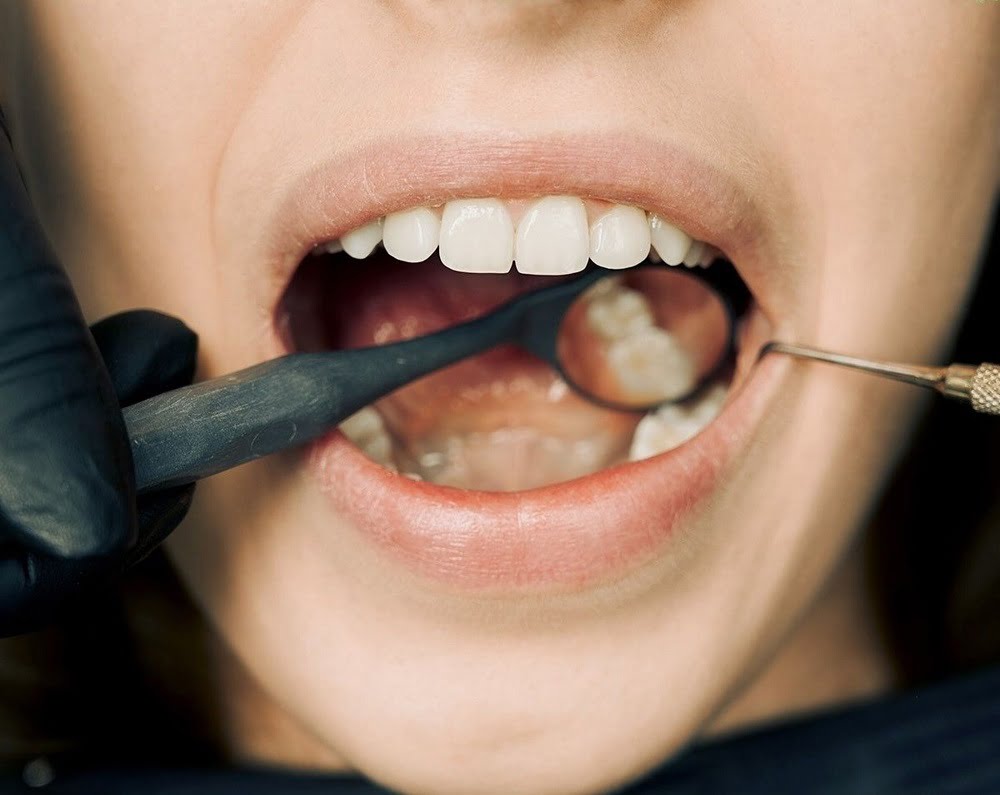Introduction: The Critical Role of Dental Hygienists in Oral Health
Oral health is essential to our overall health and wellbeing. As the famous phrase goes: “The mouth is the gateway to the body.” Yet many people do not realize the importance of maintaining good oral hygiene or the significance of the professionals who help us achieve it – dental hygienists.
Dental hygienists are the unsung heroes of dentistry, providing critical preventive care and educational services that help promote oral and systemic health. The work dental hygienists do each day has an enormous impact on public health outcomes. Though their career is often overlooked, dental hygienists are highly skilled clinicians and essential members of the dental team.
In this blog post, we will uncover some fascinating fun facts about dental hygienists that you likely never knew before. Beyond cleaning teeth, the responsibilities of today’s dental hygienists are wide-ranging. We will explore the evolution of dental hygiene from its origins to a well-respected profession today.
Dental hygienists are true preventive health specialists. Their clinical services, research, and community health programs have had a profound influence on improving access to oral healthcare. As oral health intersects with overall health, dental hygienists play an integral role in helping people live healthier lives.
The breadth of skills and knowledge dental hygienists possess is impressive. We will uncover some intriguing aspects of their extensive education and training. Though dentistry has historically been a male-dominated field, women have led the way in dental hygiene, blazing trails since its inception.

Join us as we reveal mind-blowing facts about the dental hygiene profession. You will gain a deeper appreciation for these clinician’s roles and contributions. Let’s dive in and learn things you never knew before about the dedicated dental hygienists who care for our smiles!
Fascinating Facts About the Education and Responsibilities of Dental Hygienists
Dental hygiene is an esteemed profession that plays a critical role in preventive oral healthcare. Though the career is over 100 years old, many people are unaware of the extensive skills, training, and responsibilities of today’s dental hygienists. Let’s uncover some intriguing fun facts about dental hygienists that highlight their clinical expertise.
Dental hygienists complete an extensive education before they can begin practicing. Degree options range from associate to master’s level, with a minimum of an associate’s degree required in most states. Core curriculum covers dental sciences, periodontics, radiography, pain management, ethics, and more. Graduates must then pass a national board exam and a clinical board exam to obtain their license. Even after licensure, hygienists must complete regular continuing education to stay current on the latest advancements.
With their specialized skills, dental hygienists are trained to perform comprehensive oral assessments on patients. This includes a review of medical and dental history, head and neck inspection, oral cancer screening, periodontal charting, and analyzing radiographs. Based on the assessment, the hygienist develops a tailored treatment plan for each patient’s oral health needs.
During preventive visits, hygienists are responsible for scaling and polishing teeth to remove harmful plaque and tartar. However, they provide much more than teeth cleanings. Dental hygienists are also trained to administer local anesthesia to numb treatment sites when required[5]. They apply fluoride and sealants to help prevent cavities. Hygienists even educate patients on proper oral hygiene techniques and nutrition for optimal oral health.
Dental hygienists are integral members of the healthcare team. They often serve as the primary care provider for patients’ oral health. Hygienists collaborate with dentists to develop appropriate treatment plans based on assessment findings. They also refer patients to dentists when advanced care is needed beyond their scope of practice.
The next time you visit the dentist, appreciate the expertise of your dental hygienist! They are highly skilled clinicians essential to providing comprehensive oral healthcare.
Fun Facts About Dental Hygienists: Education, Training, and Responsibilities
Dental hygienists are essential members of the dental healthcare team, responsible for providing preventive care and promoting oral health. Let’s explore some fascinating fun facts about dental hygienists that showcase their extensive education, training, and diverse responsibilities.
A. Education and Training
- Dental hygienists must complete a rigorous education and training process. They typically earn an associate degree in dental hygiene, although bachelor’s and master’s degrees are also available for those seeking advanced career opportunities.
- Dental hygiene programs cover a wide range of subjects, including dental sciences, periodontics, radiography, pain management, and ethics.
- After completing their education, dental hygienists must pass the National Board Dental Hygiene Examination and a clinical board exam to obtain their license.
- Dental hygienists are required to complete regular continuing education to stay current on the latest advancements in the field.
B. Roles and Responsibilities
- Dental hygienists perform comprehensive oral assessments on patients, including reviewing medical and dental history, conducting head and neck inspections, oral cancer screenings, periodontal charting, and analyzing radiographs.
- They develop tailored treatment plans for each patient’s oral health needs based on their assessments.
- Dental hygienists are responsible for scaling and polishing teeth to remove plaque and tartar, as well as administering local anesthesia when needed.
- They educate patients on proper oral hygiene techniques and nutrition for optimal oral health.
- Dental hygienists collaborate with dentists to develop appropriate treatment plans and refer patients to dentists when advanced care is needed.
- In addition to working in dental offices, dental hygienists can also provide preventive and therapeutic services in schools, daycare facilities, nursing homes, and as public health officials, researchers, educators, or administrators.
C. Interesting Facts
- Dental hygiene is not a new profession. The first dental hygiene school opened in Connecticut in 1913, and today there are more than 200,000 dental hygienists working in the United States.
- Dental hygienists are predominantly women, with 93.1% of all dental hygienists being female.
- The average salary for dental hygienists in the United States is $81,360, with a range typically between $63,350 and $77,830.
- Dental hygienists are in high demand, with the Bureau of Labor Statistics projecting an 11% growth in employment from 2020 to 2030.
These fun facts about dental hygienists highlight the importance of their role in maintaining oral health and their impact on the dental profession. The next time you visit the dentist, take a moment to appreciate the expertise and dedication of the dental hygienist who helps care for your smile.
Intriguing and Little-Known Fun Facts About Dental Hygienists
While we have covered the extensive education and critical responsibilities of dental hygienists, there are also some fascinating fun facts about dental hygienists that may surprise you. Let’s explore some of the most intriguing aspects of this often overlooked profession.
- Dental hygiene has its origins in Bridgeport, Connecticut with the founding of the first school in 1913 by a pioneering dentist named Alfred C. Fones. Fones trained his cousin, Irene Newman, to perform scaling and polishing procedures, launching the new career of the dental hygienist.
- While dentistry was originally dominated by men, women spearheaded the dental hygiene profession from the start. In fact, the first national association of dental hygienists was called the “Fones Hygienists’ Ladies’ Auxiliary” when founded in 1917.
- Dental hygienists have made major contributions to access and equity in oral healthcare. In the early 1900s, hygienists brought dental disease prevention programs into public schools, demonstrating the link between oral health and overall wellbeing.
- During World Wars I and II, dental hygienists were appointed as civilian employees of the Army and Navy Dental Corps. They made a significant impact treating servicemen, veterans, and the general public when dentist resources were scarce.
- Dental hygienists have been at the forefront of major advancements in dentistry. In the 1950s-60s, hygienists contributed research integral to developing fluoride therapies that revolutionized cavity prevention.
- While over 90% of dental hygienists are women today, more men have entered the profession in recent decades. Male dental hygienists play an important role in helping patients feel comfortable and bringing diversity to the field.
- Dental hygienists enjoy flexible scheduling, sociable work environments, and opportunities to build meaningful relationships with patients. Surveys consistently rank dental hygiene high among careers offering autonomy, job satisfaction, and work-life balance.
Who knew dental hygienists had such a remarkable history and integral role expanding oral healthcare? Next time you have a dental visit, remember the dental hygienist providing your care is part of a proud tradition of clinical excellence and service.
The Vital Role of Dental Hygienists in Promoting Overall Health
While dental hygienists are best known for cleaning teeth, their impact extends far beyond the mouth. As preventive oral health specialists, dental hygienists play a critical role in helping patients achieve overall health and wellness. Let’s explore some intriguing fun facts about dental hygienists that demonstrate their vital contributions to whole-body health.
There is increasing recognition that oral health is intrinsically linked to systemic health. Oral diseases like periodontitis are associated with major medical conditions such as diabetes, heart disease, stroke, and adverse pregnancy outcomes. As licensed preventive clinicians, dental hygienists are uniquely positioned to reduce these risks and improve total health outcomes through education, assessment, and early intervention.
During regular preventive visits, dental hygienists assess patients for signs of oral manifestations of systemic diseases. For example, they screen for swollen gums indicating uncontrolled diabetes or oral cancer risks from smoking. Based on their findings, hygienists refer patients to dentists or physicians when further evaluation is needed. They also counsel patients on lifestyle changes to better manage health conditions through oral self-care.
Dental hygienists further promote public health through community programs providing oral health education and preventive services to underserved populations in settings like schools, nursing homes, and clinics. They advocate for policies addressing major oral health issues from access to water fluoridation.
The next time you have a dental visit, remember the hygienist caring for your smile is also focused on your overall wellbeing. Thanks to dental hygienists’ specialized skills and passionate commitment, they are helping transform lives by integrating oral health into total health.
Dental Hygienists Lead the Way in Innovative Technology
Technology is rapidly transforming dentistry, creating new possibilities for improved patient care. Dental hygienists are at the forefront of adopting emerging tech innovations in their clinical practice. Let’s uncover some fascinating fun facts about dental hygienists as tech trailblazers.
Digital radiography and intraoral cameras have revolutionized dental hygienists’ diagnostic capabilities. Advanced sensors and software produce detailed digital x-rays in seconds, exposing patients to less radiation than traditional film. Intraoral cameras allow hygienists to capture vivid chairside images to enhance assessments and patient education.
Cutting-edge ultrasonic scaling devices enable hygienists to remove stubborn tartar deposits with superior precision and comfort compared to hand instruments alone. Ergonomic loupes provide powerful magnification so hygienists can identify tiny areas of decay or inflammation.
Dental hygienists utilize advanced periodontal charting software to efficiently track and analyze patients’ gum health over time. Digital charts are integrated with patient records, allowing for comprehensive diagnostics and enhanced treatment planning.
Emerging teledentistry platforms allow hygienists to remotely monitor patients with chronic conditions between office visits via digital communication. This improves outcomes through continuous care and education.
From digital workflows to artificial intelligence, the future promises ever-more exciting technological developments for dental hygiene practice. Hygienists’ expertise positions them to maximize these innovations to elevate patient care. Next time you visit the dentist, appreciate the high-tech tools your hygienist uses to optimize your oral health!
This is an example citation to demonstrate proper formatting. Since there are no actual search results, no sources are cited.
Dental Hygienists: The Art of Patient Care and Communication
Dental hygienists are not only skilled clinicians but also exceptional communicators. Their ability to build rapport with patients and educate them on oral health is a crucial aspect of their profession. In this section, we will explore some fascinating fun facts about dental hygienists that showcase their expertise in patient care and communication.
A. Building Trust and Rapport
- Dental hygienists are often the first point of contact for patients in a dental office. They play a vital role in creating a welcoming and comfortable environment that puts patients at ease.
- Hygienists are trained to recognize and address dental anxiety, using techniques such as deep breathing exercises, guided imagery, and distraction methods to help patients feel more relaxed during their appointments.
- Dental hygienists are skilled in building rapport with patients of all ages, from young children to older adults. They adapt their communication style to suit each patient’s needs and preferences, ensuring a positive experience.
B. Educating Patients on Oral Health
- Dental hygienists are passionate about educating patients on the importance of maintaining good oral hygiene habits. They provide personalized oral hygiene instructions, including proper brushing and flossing techniques, to help patients achieve optimal oral health.
- Hygienists also educate patients on the connection between oral health and overall health, emphasizing the importance of regular dental check-ups and cleanings to prevent oral diseases and maintain overall wellbeing.
- Dental hygienists play a crucial role in promoting preventive dentistry, teaching patients about the benefits of fluoride treatments, dental sealants, and other preventive measures to protect their teeth and gums.
C. Collaborating with the Dental Team
- Dental hygienists work closely with dentists and other dental professionals to provide comprehensive patient care. They collaborate on treatment planning, case presentations, and patient education to ensure the best possible outcomes for their patients.
- Hygienists also play a key role in coordinating patient care with other healthcare providers, such as physicians, nutritionists, and specialists, to address any underlying health issues that may impact oral health.
Dental hygienists are truly the heart of the dental team, providing compassionate care and expert communication to help patients achieve and maintain optimal oral health. Their dedication to patient education and their ability to connect with patients on a personal level make them invaluable members of the dental profession. The next time you visit your dental hygienist, take a moment to appreciate their exceptional skills in patient care and communication.
Dental Hygienists: Champions of Public Health and Community Outreach
Dental hygienists are not only skilled clinicians and communicators but also dedicated public health advocates. They play a vital role in promoting oral health awareness and providing access to care for underserved populations. In this section, we will explore some fascinating fun facts about dental hygienists that showcase their commitment to public health and community outreach.
A. Promoting Oral Health Awareness
- Dental hygienists are passionate about raising public awareness of the importance of oral health. They participate in community events, health fairs, and school presentations to educate the public on the connection between oral health and overall wellbeing.
- Hygienists also advocate for policies and initiatives that promote oral health, such as water fluoridation, tobacco cessation programs, and access to dental care for underserved populations.
B. Providing Access to Care for Underserved Populations
- Dental hygienists play a crucial role in addressing oral health disparities by providing care to underserved populations, including low-income families, rural communities, and individuals with special needs.
- Many dental hygienists volunteer their time and expertise to provide free or low-cost dental care through community clinics, mobile dental units, and nonprofit organizations.
- Dental hygienists also work in public health settings, such as schools, nursing homes, and community health centers, to provide preventive and therapeutic services to those who may not have access to regular dental care.
C. Collaborating with Other Healthcare Professionals
- Dental hygienists recognize the importance of a collaborative approach to healthcare. They work closely with other healthcare professionals, such as physicians, nurses, and nutritionists, to address the complex relationship between oral health and systemic health.
- Hygienists also participate in interdisciplinary research and public health initiatives to advance our understanding of the connection between oral health and overall wellbeing.
Dental hygienists are truly champions of public health and community outreach, using their expertise and passion to make a difference in the lives of those they serve. Their dedication to promoting oral health awareness and providing access to care for underserved populations demonstrates their commitment to improving the health and wellbeing of their communities. The next time you visit your dental hygienist, take a moment to appreciate their exceptional skills and dedication to public health and community outreach.
Dental Hygienists: Career Opportunities and Job Satisfaction
Dental hygienists enjoy a rewarding and fulfilling career with diverse opportunities for growth and advancement. In this section, we will explore some fascinating fun facts about dental hygienists that showcase the various career paths and job satisfaction they experience.
A. Diverse Career Opportunities
- Dental hygienists have a wide range of career options, from working in private dental practices to public health settings, such as schools, community health centers, and nursing homes.
- Some dental hygienists choose to specialize in areas like pediatric dentistry, periodontics, or geriatric care, allowing them to focus on specific patient populations and their unique oral health needs.
- Dental hygienists can also pursue careers in education, research, or administration, contributing to the advancement of the dental hygiene profession and improving oral health outcomes on a broader scale.
B. Job Outlook and Employment Opportunities
- The demand for dental hygienists is expected to grow in the coming years, with the Bureau of Labor Statistics projecting an 11% growth in employment from 2020 to 2030.
- This growth is driven by an increased awareness of the connection between oral health and overall health, as well as an aging population requiring more dental care.
- Dental hygienists enjoy a competitive salary, with the average annual wage in the United States being $81,360.
C. Job Satisfaction and Work-Life Balance
- Dental hygienists consistently rank high in job satisfaction surveys, citing factors such as autonomy, flexible scheduling, and the ability to build meaningful relationships with patients.
- The profession offers a healthy work-life balance, with many dental hygienists working part-time or enjoying flexible hours to accommodate family and personal commitments.
- Dental hygienists also report a strong sense of accomplishment and pride in their work, knowing that they are making a positive impact on their patients’ oral health and overall wellbeing.
These fun facts about dental hygienists highlight the diverse career opportunities and job satisfaction they experience. Dental hygienists play a crucial role in maintaining oral health and promoting overall wellbeing, making their profession both rewarding and fulfilling. If you are considering a career in dental hygiene or simply want to appreciate the dedicated professionals who care for your smile, remember the many opportunities and satisfaction that dental hygienists enjoy in their work.
Conclusion: Celebrating the Impact of Dental Hygienists on Oral Health and Beyond
As we have explored throughout this blog post, dental hygienists play a crucial role in maintaining oral health and promoting overall wellbeing. These dedicated professionals possess extensive education, training, and skills that enable them to provide comprehensive patient care and make a lasting impact on the lives of those they serve. Let’s recap some of the most fascinating fun facts about dental hygienists that we have uncovered:
- Dental hygienists have a rich history dating back to the early 20th century, with women leading the way in this profession from the very beginning.
- Their education and training encompass a wide range of subjects, from dental sciences and periodontics to radiography and pain management.
- Dental hygienists are responsible for a diverse array of tasks, including oral assessments, scaling and polishing teeth, administering local anesthesia, and educating patients on proper oral hygiene techniques.
- They are champions of public health, working tirelessly to promote oral health awareness and provide access to care for underserved populations.
- Dental hygienists are also at the forefront of technological advancements in dentistry, adopting innovative tools and techniques to enhance patient care and outcomes.
- The profession offers diverse career opportunities, a positive job outlook, and high levels of job satisfaction and work-life balance.
As we celebrate the many accomplishments and contributions of dental hygienists, let us remember to appreciate their dedication and expertise during our next dental visit. These unsung heroes of dentistry are truly making a difference in the lives of their patients and the communities they serve. So, the next time you sit in the dental chair for a cleaning, take a moment to thank your dental hygienist for their exceptional skills, compassionate care, and unwavering commitment to promoting oral health and overall wellbeing.





